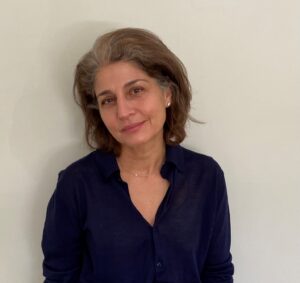 U.S. citizens don’t feel like they are being heard in politics.
U.S. citizens don’t feel like they are being heard in politics.
Marjan Ehsassi, Berggruen Future of Democracy fellow and research and assistant professor at Johns Hopkins University, details this in an international framework.
Dr. Marjan H. Ehsassi is a Berggruen Future of Democracy Fellow (non-resident) and Strategic Director of the Democratic Action Fund. A former litigator and governance practitioner, she is an expert in citizen participation, democratic innovations, and deliberation.
Putting the Public Back in Policy
Elected representatives from a broad range of Western democracies are taking measures to give voice to citizens in decision making. Confronted with protests, polarization, and pessimism, they recognize the need for a system of governance that is more inclusive and responsive.
Our leaders in the U.S. have so far chosen to abstain from this movement, focusing instead on partisan politicking that sporadically ignites the base but does nothing to engage citizens in meaningful dialogue. The results are uninspiring – 83 per cent of U.S. citizens feel there isn’t an adequate system in place for their voice to be heard.
From December 2022 to March 2023, 184 French residents came together as participants of the French Citizens’ Convention on the End of Life. They learned together, deliberated, and offered their final report to President Macron. With 76% of participants in favor of assisted suicide and euthanasia, Macron has asked the National Assembly to introduce a legal framework for change.
Democratic Action Fund (DAF) are another big idea in democratic innovations. The idea is simple: governments – national, state-wide and municipal – allocate 5-10 per cent of the amount they spend on elections to set up a fund for deliberative citizen engagement. DAFs accelerate the number of citizens assemblies and create more opportunities for citizens to engage at every level of government.
By pitching civic dialogue and deliberation tents, citizens’ assemblies strengthen existing representative structures, enhance knowledge, build cohesion, and engage citizens and provide meaningful and consequential voice. They generate stronger policy outcomes and enhance public trust in democratic institutions.
Meanwhile, cities across the U.S. are mired in debilitating homelessness, escalating gun violence and a devastating opioid crisis that is taking the lives of our children. What will it take for our politicians to demonstrate bold vision and learn from models tested in other countries?
Read More:
www.newdemocracy.com.au/wp-content/uploads/2023/06/RD-Note-CCFV.pdf

Comments
One response to “Marjan Ehsassi, Johns Hopkins University – Putting the Public Back in Policy”